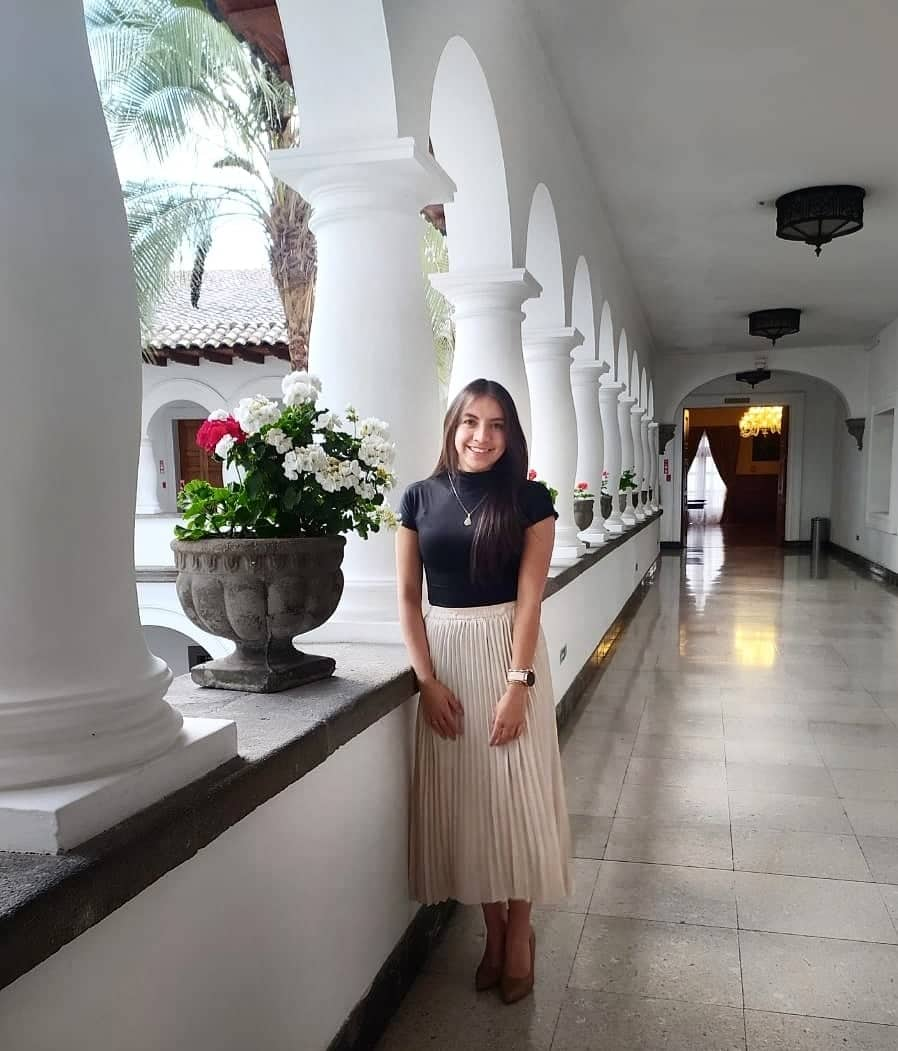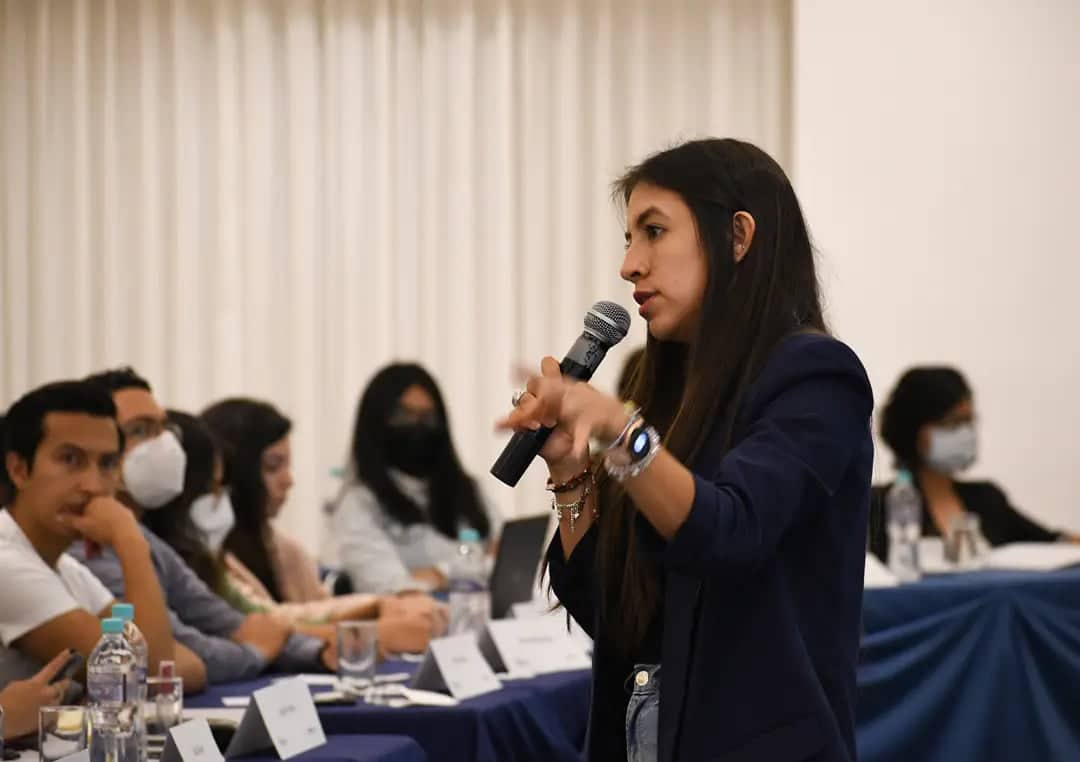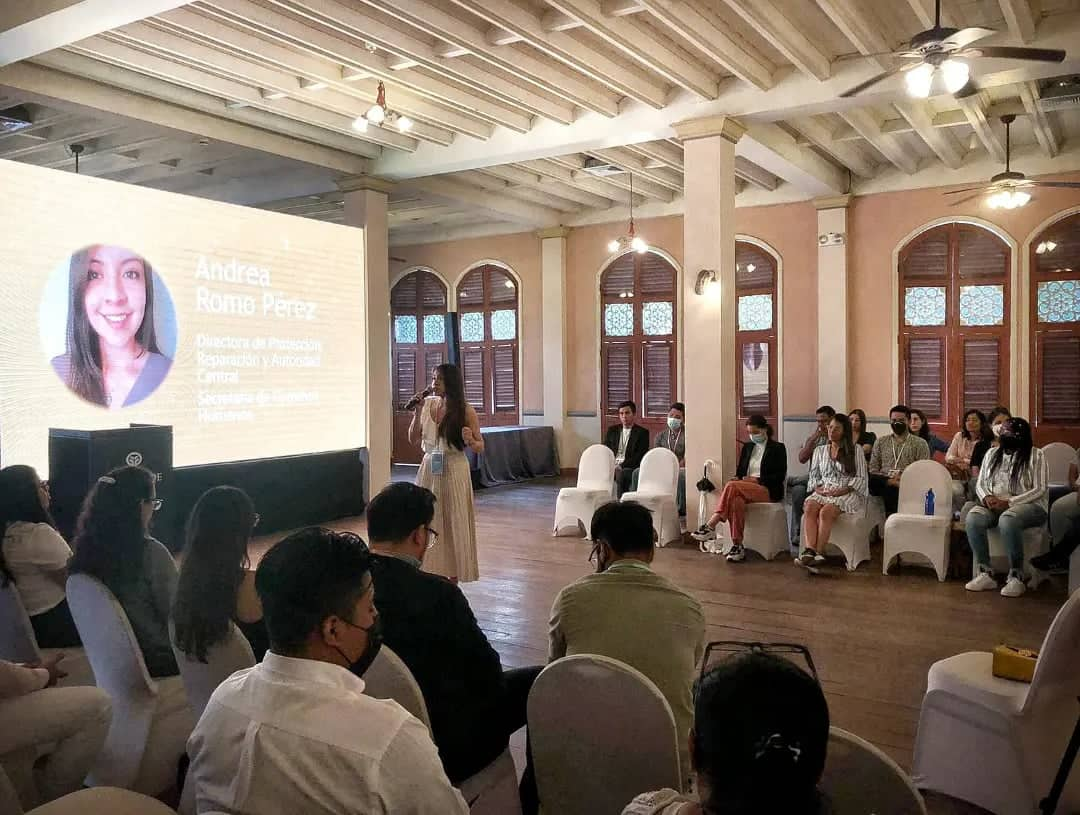
[Story Telling for SDG Implementation] Andrea Romo (MDP 2019)
- Date 2022-09-07 15:47
- CategoryStory
- Hit1050
NB: This interview is part of the series, ‘Story Telling for SDG Implementation: Case Studies from Around the World.’ It is a KDIS Alumni Working Partner Program initiative run by Ms. Cynthia Mbabazi (MPP 2019) and Mr. Socrates Luseka (MDP 2019).
By sharing stories of notable KDI School Alumni involved in various SDG implementing initiatives, they hope to inspire other KDIS community members to implement SDGs in their own areas of practice.

Ms. Andrea Romo, is the Director of Protection, Integral Reparation and Central Authority division at the Secretariat of Human Rights of the Republic of Ecuador. Prior to that she was the Sustainable Development Project Coordinator at CorpoAmbato, an Ecuador based non-profit organization that seeks to promote the economic growth and the development of the city of Ambato through active and concerted participation of key social actors, such as local governments, entrepreneurs, universities, community leaders and politicians. Despite moving on to her current position, she is still involved in some of the CorpoAmbato projects through the external consultancy services that she gets to render when called upon.
In this interview segment we explore her contribution at CorpoAmbato and its ties to the implementation of SDG no. 8, ‘Decent Work and Economic growth.
She met Cynthia (MPP 2019) and Socrates (MDP 2019), and shared her experiences.
Kindly take as through some of the key activities and projects that CorpoAmbato occasionally undertakes in fulfilling its organizational mandate?
Corpo Ambato is an agency that works on economic and sustainable development projects in Tungurahua, my province. It aims to create inter-partnership ecosystems to try and incorporate vulnerable groups into the economic modal progress.
What the agency does is to design programs and projects, identify entrepreneurs, small businesses and MSMEs working in certain areas, and then offer training, advisory and resource platforms for them to scale, become sustainable and create descent jobs while at it. We design projects that are aimed at matchmaking vulnerable groups i.e. the youth and women (involved in entrepreneurship), with donors. We identify where key donors are and at the same time train the groups on how to obtain the donors’ funding, say by taking them through the required criteria among other things.
As a SD Project Coordinator at CorpoAmbato, you designed and managed a number of projects. Could you share a few?

First, is the physical and digital laboratory project for young entrepreneurs that was funded by GIZ-the German Development Agency. I began working on this project right after coming from S.Korea. Through the project, we ran a training program for young people from 18 to 35 years, taking them through a number of workshops on finance, taxation, management, product design, etc. The workshops were aimed at trying to provide them with tools to come up with viable business ideas, and if they already had businesses, use the tools to scale or transform their businesses into sustainable entities. The training was actually the first part of this project.
After the training came the transition to the laboratory phase, where a viable idea was transformed into a product prototype, and tested for the market. It was really interesting because here in my province, young entrepreneurs from all over were trying to come up with novel and unique products, that weren’t there, and in a way they felt challenged, stretched and empowered. In addition to that, the project in itself was a networking platform and as such they also got connected to mentors, investors, and other entrepreneurs. Later on, some of their products eventually find their way into the market. One can now go to the small shops and find some of the products. That was really interesting.
Second, was a project that we planned for women when I was about to leave Corpo Ambato. We had realized that if we created an atmosphere of similar or related groups, they kind of got on faster and felt more comfortable to share what they thought. We created an entrepreneurship project for women and then presented it to a Canadian agency, and were lucky to secure funding. What the donor found interesting was that we created a methodology that accommodated women with children. We created common and safe spaces for children to stay while their mothers went on with the training workshops. Some months after leaving Corpo Ambato, I remember attending an event at the Canadian embassy and meeting some of the women with their products. That was nice.
What nature of challenges did you get to encounter while conducting and implementing the aforementioned projects?
First, I would say after the on-set of the pandemic one of the main challenges we all faced was the transition to using digital tools. Integrating digital technology into our programs was quite a challenge because some of the entrepreneurs that we had onboarded did not have adequate digital capacity i.e. some did not have Wi-Fi connection at home, didn't know how to use a computer or couldn’t figure out how to effectively use digital platforms during the training programs.
Second, I’d also say that even though we at Corpo Ambato had tried to create the atmosphere for entrepreneurs to think big and different, there are some entrepreneurs whose definition of entrepreneurship stagnated at ‘selling a product,’ and nothing beyond that. Changing the mindset of participants in the projects was quite challenging.
We gather that you have been involved a lot in the civic space both while working at Corpo Ambato, Municipal Council of Ambato, UNDP etc. Why are you that passionate about this field?
I would say that I believe in people and their potential, and as such I find joy in using my capacity, either to empower or help them identify and realize their potential. Moreso, I relish engaging in activities within the community that are geared towards helping people to find solutions to existing socio-economic challenges. Whether connecting people to opportunities, linking them to resources, or offering platforms for people to interact, work together for a common goal, etc.
My KDIS Supervised Research Project (SRP) was about smart communities. And what I tried to demonstrate was that there is more to technology when it comes to creating smart spaces. We not only have to focus on technology as it is but also how people can connect and use the technological tools to talk about issues. I strongly believe in that, how people can connect with each other and come up with solutions to problems; either on their own, or by talking and connecting with public institutions or the private sector etc. I enjoy positioning myself in spaces that would have me support or actualize such initiatives.
You started your SD Project Coordinator role right after graduating from KDI School. How do you think KDI School groomed you and prepared you for that position, and your current one?
Wow, in so many ways.
First, I learnt a lot from my professors and my colleagues. The things I learnt from them in and out of class have helped shape my career growth. I remember discussing together and coming up with solutions to different problems. The rich and diverse solutions that they would bring to the table, informed by their diverse work and cultural backgrounds were astounding to say the least.
Second, there were classes that really struck a chord with me. These were, ‘Introduction to Development Policy,’ ‘Data science and R,’ and ‘Policy Process Analysis.’ They changed my mind in so many ways, equipping me with tools to measure the impact of interventions, the ability to analyze societal issues and generate solutions, among other areas. I still go through my notes to inform some of my work.
Third, discussions, activities and exchanges in the clubs and forums were pretty helpful as well, especially in the Latin America Development Forum that I represented during the summer and spring semester of 2020.
Also, learning how Korea implemented its projects in its development phases and how to tailor it to my country’s situation was insightful.
SDG no. 8 seeks to promote sustained, inclusive and sustainable economic growth, full and productive employment and decent work for all. Looking at what CorpoAmbato does, would you say they have contributed to implementation of this SDG? How?

Well, I’d say that the work Corpo Ambato does in overall contributes to the implementation of SDGs. And this has to do with its approach and methodologies. Whereas the small businesses around Ecuador are only into profit making, Corpo Ambato attempts to help them become sustainable by incorporating sustainable solutions within their training programs.
By helping entrepreneurs to scale, adopt innovation or link them to donors, their businesses are able to grow and create productive and descent employment.
Finally, any word of encouragement to the different members of the KDI School family that are consciously positioning themselves into areas that would see them contribute to the implementation of SDGs, either directly or indirectly?
First, I’d encourage students to listen and learn from the experience of others, feel free to ask for help from their professors and other students whenever possible. KDIS community is pretty diverse, with people from different areas and experiences, and therefore one is likely to find solutions to the different development challenges.
I will also say that it is super helpful to understand what you want to do in future. That way, you’ll be able to extract all the necessary tools that you may need. This is because in spite of the plenty and incredible information in the classes, you might not end up using some. Therefore, it is important to pay attention to what your future or area of expertise requires and then make the most out of classes or programs that align with it.
